Archive for April, 2015
-
Morning News: April 15, 2015
Eddy Elfenbein, April 15th, 2015 at 7:13 amE.U. Charges Google With Violating Antitrust Laws
Investors Hunt Bargains in European Corporate Bonds
IEA Says Oil Supply Boost May Defer Market Tightening
Will Tax Season Be A Boon Or Bust For Retailers?
Small-cap Stocks to Keep Flying this Year, Top Fund Managers Say
Ex-Freddie Mac Leaders Reach Deal With S.E.C.
Xiaomi’s Ambitions Reach New Hampshire As Ninebot Buys Rival Segway
China’s JD.com Opens Doors to Foreign Products
Driverless Cars, Robot Surgeons Drive Nokia-Alcatel Merger
Nestle in Exclusive Talks To Sell Frozen Food Unit to Brakes Group
Google Gets EU Complaint on Search as Android Probed
Jeff Carter: How Changing Farm Policy Could Unleash Entrepreneurial Vision and Win the Election
Cullen Roche: Mainstream Economics is Flawed & That’s Fine
Be sure to follow me on Twitter.
-
Wells Fargo Earns $1.04 per Share
Eddy Elfenbein, April 14th, 2015 at 9:15 amWells Fargo (WFC) reported Q1 earnings this morning of $1.04 per share. That was six cents better than estimates.
Wells Fargo & Co., the most valuable U.S. bank, posted profit that beat analysts’ estimates as lower interest rates spurred more borrowers to purchase homes or refinance debt.
First-quarter net income fell 1.5 percent to $5.8 billion, or $1.04 a share, from $5.89 billion, or $1.05, a year earlier, the San Francisco-based company said Tuesday in a statement. The average estimate of 24 analysts surveyed by Bloomberg was for profit of 98 cents a share. Net interest margin dropped below 3 percent for the first time since the 1990s.
“The high end of the mortgage market, the larger-balance loans, are doing better than the run-of-the-mill loans,” Jennifer Thompson, an analyst at Portales Partners LLC in New York, said in an interview before the results were released. The bank is “well positioned” for that type of lending, she said.
Chief Executive John Stumpf is searching for more revenue while trying to cap expenses as he awaits higher interest rates from the Federal Reserve, which most economists expect to act later this year. The bank’s efficiency ratio, a measure of how much it costs to bring in a dollar of revenue, has stayed at the top end of management’s 55 percent to 59 percent range.
Chief Financial Officer John Shrewsberry has highlighted one area of strength, the U.S. mortgage market. On Feb. 10 he said that volume at the nation’s largest home lender would be similar to the fourth quarter, when it made $44 billion in loans, “despite the fact that the first quarter usually reflects a slower purchase market.”
-
Morning News: April 14, 2015
Eddy Elfenbein, April 14th, 2015 at 7:09 amWTO Cuts World Trade Growth Forecasts for 2015 and 2016
Will Mario Draghi Leave the ECB Without Ever Raising Rates?
UK Remains on the Brink of Deflation
Japan Court Halts Restart of Two Reactors in Blow to Nuclear Sector
China Premier Says Downward Pressure on Economy Still Increasing
Oil Bulls Boost Wagers by Most Since 2010 as Output Seen Peaking
Shale Oil Boom Could End in May After Price Collapse
JPMorgan First-Quarter Profit Rises 12% on Bond-Trading Rebound
Nokia Confirms Advanced Merger Talks With Alcatel-Lucent
Builders FirstSource to Buy ProBuild Holdings for $1.63 Billion
Jeffrey Immelt Is Putting His Own Stamp on Jack Welch’s G.E.
Citi Seeking to Sell Retail FX Arm
The $74 Million Stock Award That Jarden’s Board Values at Zero
Credit Writedowns: Will the AIIB Ever Matter?
Roger Nusbaum: Mexico Enters the Century Bond Business
Be sure to follow me on Twitter.
-
The Small-Cap Resurgence
Eddy Elfenbein, April 13th, 2015 at 3:22 pmI touched on this in the last post but I wanted to add some more comments to the rebound in small-cap stocks. The Russell 2000 had led the S&P 500 for 15 years. Then, about a year ago, the cycle finally turned.
Or did it?
The Russell 2000 did indeed lag the broader market by a wide margin from March to October. But all that changed six months ago. Since then, small-caps have been on a tear. The Russell 2000 looks to make a new high today.
Here’s a look at the Russell 2000 divided by the S&P 500. The Russell 2000 is still well short of a relative performance high, but you can see how much it has closed the gap.
-
Broader Indexes Are Near New Highs
Eddy Elfenbein, April 13th, 2015 at 10:56 amSmall-cap stocks have been doing quite well lately. As a result, the broader market indexes are close to their March 2 all-time high even though the large-cap S&P 500 is not.
On March 2, the Russell 3000 closed at 1,263.03. Today it’s been as high as 1,262.65.
On March 2, the S&P 500 closed at 2,117.39. Today’s high is 2,107.65.
Here’s the Russell 3000 in black, along with the S&P 500 in gold and the mega-cap S&P 100 in blue. The big boys are lagging.
-
Activists Want Qualcomm to Break Up
Eddy Elfenbein, April 13th, 2015 at 10:25 amCarl Icahn had success getting eBay (EBAY) to part with PayPal. Now activist investors at Jana Partners want Qualcomm (QCOM) to break itself up:
Qualcomm Inc. is under pressure from activist investor Jana Partners LLC to consider a breakup and other options to boost the giant chip maker’s sagging stock price.
Jana is asking Qualcomm to consider spinning off its chip unit from its patent-licensing business, which accounts for most of the company’s profit, according to a quarterly letter to Jana investors reviewed by The Wall Street Journal. Qualcomm itself proposed the idea 15 years ago but later called it off.
Jana—which has purchased a stake of more than $2 billion, making it one of Qualcomm’s largest shareholders—also is calling on the company to cut costs, accelerate stock buybacks and make changes to its executive-pay structure, financial reporting and board of directors, according to the New York hedge fund’s letter, which was slated to be sent to Jana investors Monday.
I think that’s a good idea for QCOM and it would be in the best interest of shareholders, though I’ll note that Qualcomm has not been as resistant as others in regard to shareholders. Last month QCOM hiked their dividend by 14% and announced a massive share buyback.
Shares of QCOM have been up as much as 4% this morning but are now up about 1.7%. Earnings are due on April 22.
-
Morning News: April 13, 2015
Eddy Elfenbein, April 13th, 2015 at 7:03 amGreece May Have Blown Best Hope of Debt Deal
Don’t Panic About China’s Trade Numbers Slump
How to Make More Money from Hong Kong Stocks
Oil Rises a Third Day as Iran Export Recovery Remains in Doubt
Why the Trial of Former Chinese Oil Executive Jiang Jiemin Matters
US Federal Reserve’s John Williams Sees Less Risk of Rate Retreat After Lift-Off
Dollar’s Rise Reshuffles Global Economy Into Winners and Losers
Wall Street Banks’ Mutual Funds Can Lag on Returns
How Obamacare Cost Squeeze May Push Rite Aid To Walgreens
LinkedIn Sharpens Its Profile With Lynda
Spotify May Soon Be Worth More Than $8 Billion
UPS to Invest $1.06 Billion in Europe
Jeff Carter: Chains of Distribution
Jeff Miller: Weighing the Week Ahead: The Start of an Earnings Recession?
Be sure to follow me on Twitter.
-
GE to Sell GE Capital
Eddy Elfenbein, April 10th, 2015 at 8:02 amBig news today from General Electric (GE):
The NYT reports.
General Electric plans to sell off most of its finance arm within two years, redefining the multinational conglomerate as it seeks to complete a transformation begun amid the tumult of the financial crisis.
In addition to the huge planned sales of assets outlined by the company on Friday, General Electric will take other major steps, including bringing back about $36 billion in cash that currently resides overseas.
Rapidly shrinking the finance arm, GE Capital — once the most powerful driver of the company’s earnings until it rocked the parent company after the fall of Lehman Brothers in 2008 — will erase one of the most prominent legacies of G.E.’s former chief executive, Jack Welch.
But it could also release the company from one of its biggest burdens: strict regulatory requirements that come with GE Capital’s being regarded as a financial institution that is too big to fail.
The shares are up 9% in pre-market trading.
-
CWS Market Review – April 10, 2015
Eddy Elfenbein, April 10th, 2015 at 7:08 am“Far more money has been lost by investors’ preparing for corrections, or trying to anticipate corrections, than has been lost in the corrections themselves.” – Peter Lynch
First-quarter earnings season is here, and this is a tricky time for the markets. Not just here, but globally. Thanks to the massive bond-buying of Mario Draghi and the ECB, bond yields in Europe have gotten comically low. This week, the Swiss were the first to have a negative yield for their 10-year bond. Think about that! Investors are paying the government to borrow their money for the next ten years.
Now there’s a rush of non-Europeans to float debt that’s denominated in euros. Heck, why not? Mexico just sold 1.5 billion euros’ worth of bonds for a yield of 4.2%. The bonds mature in the year 2115. That’s right—these are 100-year bonds!
You don’t need an econ Ph.D. to see what’s going on. If somebody’s willing to buy everything, then someone else will be more than happy to sell it to them. Some folks wonder if Draghi will be able to find enough bonds to buy. Just as our stock market celebrated QE, so too are the European stock markets toasting Draghi. The key European stock index, the Stoxx Europe 600 Index, is up already up 19% this year, and it finally breached its high from 15 years ago (see chart above). There are few things stocks love more than easy money.
In this week’s CWS Market Review, we’ll take a closer look at what’s driving the market and what it means for us. I’ll also cover the recent earnings report from Bed Bath & Beyond (BBBY). The results were decent, but their guidance was on the weak side. I’ll also preview next week’s earnings report from Wells Fargo (WFC). Wells continues to be one of my favorite banking stocks. Last month, the bank passed the Fed’s latest stress test with flying colors. I’ll also share with you some Buy List stocks that look particularly attractive right now. But first, let’s try to make some sense out of the craziness found on a certain street in lower Manhattan.
Don’t Get Caught up in the Earnings-Expectations Game
The S&P 500 has risen four of the last five days, but it’s been in a narrow trading range. The index has closed between 2,040 and 2,120 for the last 46 days in a row. But now earnings season is upon us, and we’ll soon see the profit and loss numbers. But I want to caution investors not to get too caught up in the earnings-expectations game. It’s not such a big deal if a high-quality stock misses earnings by a penny or two. What we want to see are general trends of sound business. That’s far more important than trying to outguess some analyst.
Until now, the strong dollar has mostly been a financial phenomenon. I certainly saw it at work when I was in the Philippines, but most Americans haven’t seen the macro effects outside their local gas pump. That’s starting to change, and we’re going to see more evidence of the strong dollar this earnings season. A currency rally is like the financial equivalent of placing a magnet near a compass. It can throw off all your readings.
The latest numbers say that Wall Street expects Q1 earnings from the S&P 500 of $26.74. That’s the index-adjusted figure (each point in the S&P 500 is worth about $8.85 billion). That’s down 16.9%, or $5.44, from the middle of last year, and a lot of that is due to the strong dollar.
Bank of America Merrill Lynch estimates that every 10% increase in the dollar knocks $3 to $4 off of the S&P 500’s earnings. According to BAML, half the drop-off in earnings is due to the fall in oil prices, while another 20% is due to the dollar (see chart of the dollar index below). BAML says that without these factors, they would expect earnings to grow by 10% this year. Instead, they expect earnings to decline.
This raises an important point about valuations. If these factors are temporary, then it makes sense for the market to look past the drop in earnings. (And it’s expected to be a modest drop). That means that price/earnings ratios ought to rise. I’ve heard a lot of careless fretting about this. Instead of being the sign of an overheated market, the higher valuations are a natural response to a transient earnings glitch. Analysts currently expect earnings this year of $118.37 for the S&P 500. That’s an increase of 4.73% over last year’s total.
Wall Street was shocked by the March jobs report, which was about half what analysts were expecting. Part of that is certainly the dollar, but I’m not yet convinced it’s a major problem. In fact, the initial jobless claims are still quite good. Last week’s initial jobless report was tied for the fourth-lowest in the last 41 years. On Thursday, initial jobless claims were reported to be 281,000. This number tends to be volatile, so economists prefer to focus on the four-week average, which is now at its lowest level since 2000.
Also, the dollar appears to be stabilizing. The yen has settled around 120 to the dollar, and that could be helping AFLAC (AFL) which just touched a fresh 52-week high. Even the Russian ruble is slowly climbing back after getting obliterated last year. On Tuesday, West Texas Crude reached its highest close of the year ($53.25 per barrel). I doubt oil is headed higher, but the freefall we saw during Q4 is mostly likely over.
Now we have to worry about the Federal Reserve. I continue to believe that the Fed is sounding more hawkish than necessary. I doubt they need to raise interest rates until Q4, or maybe even next year. On Wednesday, the Fed released the minutes of their March meeting. This was a key one because the Fed ditched the all-important word “patience” from their policy statement. But the tone of the Fed’s minutes shows that the members doubt a June rate hike is needed. William Dudley, the head of the New York Fed, said, “It’d be reasonable to think that the timing of the Fed’s first rate hike might be a little further off in time.” Kind of an understatement there, Bill.
My hope is that the Fed doesn’t hike rates for a few more months, but I know not to base my investments on what I think the Fed ought to do. The important fact is that interest rates are low and will likely remain so for some time. That’s good for stocks, and it’s especially good for dividend-paying stocks. Now let’s take a look at some of the bargains on our Buy List, which includes some dividend-rich shares.
Current Buy List Bargains
There are a few Buy List stocks that look particularly good right now. Let me stress that I consider any Buy List stock that’s below its Buy Below price to be a good buy. Our Buy Below prices are not price targets, so don’t bother trying to find out which is the furthest below its Buy Below, because that doesn’t mean anything.
One Buy List stock that is a good value at the moment is Microsoft (MSFT). The stock has been very weak this year; it’s the worst-performing Buy List position. Wall Street did not like the company’s last earnings report at all. However, most of those issues were items not under Microsoft’s control, like currency-related or geopolitical problems. Analysts have been slashing their earnings forecasts. The company is expected to report quarterly earnings of 51 cents per share, which is down from 68 cents last year. The shares currently yield 3%, which is 1% more than a 10-year Treasury. Microsoft is a solid buy.
Ford (F) is another stock that looks good thanks to its dividend. Going by Thursday’s close, Ford yields 3.76%. The upcoming earnings report will be an important one. Ford is expected to show an earnings increase over last year’s Q1. Hopefully this will break a five-quarter streak of flat or declining earnings. Analysts currently expect Ford to earn $1.59 per share this year, which means the company is going for about 10 times earnings. My Buy Below on Ford is $17 per share, but if you are able to get it below $16, then that’s a very good deal.
Lastly, Cognizant Technology Solutions (CTSH) looks very good here despite its strong rally this year. This is a non-dividend payer. The next earnings report is due out on May 4. CTSH could be a big winner for us this year. As always, don’t chase after good stocks, and make sure you’re well diversified. Now let’s look at this week’s earnings report from Bed Bath & Beyond.
Bed Bath & Beyond Earned $1.80 Per Share
After the closing bell on Wednesday, Bed Bath & Beyond (BBBY) reported fiscal Q4 earnings of $1.80 per share. That’s a good result, and it was largely expected. The company had already given us a range for Q4 of $1.78 to $1.83 per share. Net sales rose by 4.2%, and the key retailing metric, comparable-store sales, rose by 3.7%. The company had modeled 4% to 5%, which they would have made if not for issues like the weather and currency fluctuations.
For the whole year, the home-furnishings retailer earned $5.07 per share. That’s a healthy increase over the $4.79 they made in fiscal 2013. Net sales rose 3.3% for year. I have to mention that BBBY’s per-share results have been greatly helped by the company’s buyback program. They’ve been buying back their own stock at a furious rate. Last quarter, the company bought back 11.8 million shares. That’s huge. It’s about 6.5% of all the outstanding shares. The current repurchase program can buy another 12 million at the current price.
Some people are strangely bothered by buyback-aided results. They think it’s somehow fudging the numbers. I disagree. These are indeed concrete gains for shareholders. I’m more bothered by companies that buy back shares while at the same time issuing millions of shares to senior executives. BBBY doesn’t do that, and the actual share count has dropped significantly over the last decade.
They key point for investors is that BBBY generates tons of cash flow. I didn’t mind when that money was used to buy a cheap stock. Remember that BBBY was at $55 last summer. But now, I’d rather not see the company so eager to buy a stock that’s not so cheap (yet hardly overpriced).
Now let’s turn to the weak spot, which was guidance. For Q1, which is already halfway over, the company sees earnings ranging between 90 and 95 cents per share. That’s kinda blah. In last week’s CWS Market Review, I told you I had been expecting 95 cents to $1 per share. They see comp-store sales rising between 2% and 3% for the quarter and the entire fiscal year. For full-year earnings, BBBY expects flat to mid-single digits. Let’s say that means 0% to 5%, so that implies an EPS range of $5.07 to $5.32. Wall Street had been expecting $5.43 per share.
I was pleased to hear the company address its web presence, which has been a weak spot. Frankly, they’ve been behind the curve on this, and they’re working to close the gap. Overall, this was a decent quarter for Bed Bath & Beyond. It was a nice increase over last year. I’m not pleased with the guidance, but this is still a well-run outfit. The shares dropped more than 5.4% on Thursday to close at $73.46 per share. Bed Bath & Beyond remains a solid buy up to $77 per share.
Wells Fargo Is a Buy up to $57 Per Share
Earnings reports for our Buy List will start to come in the week after next, but there’s one early bird, which is Wells Fargo (WFC). The big bank is due to report Q1 earnings before the market opens on Tuesday, April 14. Wells Fargo did very well for us last year, and this year started off well, but the shares have slipped a bit in the past two weeks.
The recent news has been good for Wells. Last month, the Federal Reserve said that it has no objection to their capital plan. That means the bank is allowed to raise its dividend by 7.1%, from 35 cents to 37.5 cents per share. Not all banks got the green light from the Fed, but as I’ve repeatedly said, Wells Fargo is the best-run big bank in America. Warren Buffett agrees; he owns about 9% of the stock.
Unlike other banks, Wells is more focused on lending rather than trading, and that’s been good for it. Last year, Wells’s return on equity was 13.7%. That compares well with JPM, which had an ROE of 9.8%.The downside is this is a rough environment for banking. The mortgage market is pretty weak. The S&P Bank Index has been lagging the market for more than a year.
Here’s the earnings-per-share for WFC’s last seven earnings reports: $0.98, $0.99, $1, $1.05, $1.01, $1.02, $1.02. Pretty consistent. The company has delivered 18-straight quarters of year-over-year profit growth, but that streak may be in jeopardy. The outlook for domestic consumers is improving, but that might not be enough to offset weakness in the mortgage market. Wall Street expects Q1 earnings of 98 cents per share. I expect $1. Wells Fargo continues to be an excellent stock for conservative investors. The new dividend gives the stocks a yield of 2.77%. Wells Fargo is a buy up to $57 per share.
Buy List Updates
Shares of Express Scripts (ESRX) continue to climb higher. On Thursday, the stock broke out to a new 52-week high. Walgreens (WBA), which has been very strong this year, said they’re interested in more deals. ESRX rose nearly 5% on Thursday to close at $88.47. For now, I’m keeping my Buy Below at $89 per share. Stay tuned for Q1 earnings on April 28.
On Wednesday, shares of Fiserv (FISV) closed at $80.30, which was an all-time high. This was a $14 stock in 2008. Earnings are due out later this month.
On Tuesday, Ball Corp. (BLL) said they got another request from the FTC for info about their deal to buy Rexam. The government wants to make sure the deal doesn’t violate any anti-trust laws. This is standard stuff. There’s nothing to worry about.
The big event for eBay (EBAY) this year will be spinning off PayPal. This is what Carl Icahn pushed hard for, and he was exactly right. I think there’s a very good chance that PayPal will be quickly bought out by Google or Apple, or somebody big. On Thursday, eBay disclosed the agreement they’ve reached with PayPal. The good news is that PayPal will continue to be a revenue source for them. eBay said they’ll aim to have 80% of their gross sales go through PayPal for the next five years. We still don’t know when the deal will happen, but it should be before the end of this year.
That’s all for now. Earnings season ramps up next week; several high-profile companies are due to report. We’ll also get several important economic reports. On Tuesday, the Census Bureau reports on retail sales. Industrial production is on Wednesday. IP fell for December and January and rose modestly in February. We need to see improvement here. Also on Wednesday is the Fed’s Beige Book report. Then on Friday is the CPI report. The Federal Reserve expects to see inflation rise back above 1%. Be sure to keep checking the blog for daily updates. I’ll have more market analysis for you in the next issue of CWS Market Review!
– Eddy
-
Morning News: April 10, 2015
Eddy Elfenbein, April 10th, 2015 at 7:06 amEuropean Stocks Power Through to Record on Draghi Optimism
Deutsche Bank Nears Plea Deal Over Libor Manipulation
Greece Makes IMF Payment, Gets Bank Funds, But Doubts Remain
Russian Consumers Reflect the Pinch of Economic Sanctions
Alibaba’s Online Bank Could Be a Quick Hit. Then What?
Fed Heeds Banks’ Warning on Where Next Crisis May Come From
What Will Happen To Voluntary Tax Compliance If A Budget-Constrained IRS Is Not Fixed?
Why US Government Excels in Providing Social Security Benefits
General Electric to Sell Bulk of Its Finance Unit
LinkedIn to Buy Career-Skills Educator Lynda.com for $1.5 Billion
FedEx’s Bid For TNT Will Create A More Competitive Market
Shell’s Bet on Gas Underscores Big Oil’s Push to Replace Coal
Why Jeff Gundlach Is Very Scared of High-Grade Corporate Bonds
Pragmatic Capitalism: Doubling Down on Risk
Joshua Brown: Abigail Johnson’s Blind Spot
Be sure to follow me on Twitter.
-
-
Archives
- May 2025
- April 2025
- March 2025
- February 2025
- January 2025
- December 2024
- November 2024
- October 2024
- September 2024
- August 2024
- July 2024
- June 2024
- May 2024
- April 2024
- March 2024
- February 2024
- January 2024
- December 2023
- November 2023
- October 2023
- September 2023
- August 2023
- July 2023
- June 2023
- May 2023
- April 2023
- March 2023
- February 2023
- January 2023
- December 2022
- November 2022
- October 2022
- September 2022
- August 2022
- July 2022
- June 2022
- May 2022
- April 2022
- March 2022
- February 2022
- January 2022
- December 2021
- November 2021
- October 2021
- September 2021
- August 2021
- July 2021
- June 2021
- May 2021
- April 2021
- March 2021
- February 2021
- January 2021
- December 2020
- November 2020
- October 2020
- September 2020
- August 2020
- July 2020
- June 2020
- May 2020
- April 2020
- March 2020
- February 2020
- January 2020
- December 2019
- November 2019
- October 2019
- September 2019
- August 2019
- July 2019
- June 2019
- May 2019
- April 2019
- March 2019
- February 2019
- January 2019
- December 2018
- November 2018
- October 2018
- September 2018
- August 2018
- July 2018
- June 2018
- May 2018
- April 2018
- March 2018
- February 2018
- January 2018
- December 2017
- November 2017
- October 2017
- September 2017
- August 2017
- July 2017
- June 2017
- May 2017
- April 2017
- March 2017
- February 2017
- January 2017
- December 2016
- November 2016
- October 2016
- September 2016
- August 2016
- July 2016
- June 2016
- May 2016
- April 2016
- March 2016
- February 2016
- January 2016
- December 2015
- November 2015
- October 2015
- September 2015
- August 2015
- July 2015
- June 2015
- May 2015
- April 2015
- March 2015
- February 2015
- January 2015
- December 2014
- November 2014
- October 2014
- September 2014
- August 2014
- July 2014
- June 2014
- May 2014
- April 2014
- March 2014
- February 2014
- January 2014
- December 2013
- November 2013
- October 2013
- September 2013
- August 2013
- July 2013
- June 2013
- May 2013
- April 2013
- March 2013
- February 2013
- January 2013
- December 2012
- November 2012
- October 2012
- September 2012
- August 2012
- July 2012
- June 2012
- May 2012
- April 2012
- March 2012
- February 2012
- January 2012
- December 2011
- November 2011
- October 2011
- September 2011
- August 2011
- July 2011
- June 2011
- May 2011
- April 2011
- March 2011
- February 2011
- January 2011
- December 2010
- November 2010
- October 2010
- September 2010
- August 2010
- July 2010
- June 2010
- May 2010
- April 2010
- March 2010
- February 2010
- January 2010
- December 2009
- November 2009
- October 2009
- September 2009
- August 2009
- July 2009
- June 2009
- May 2009
- April 2009
- March 2009
- February 2009
- January 2009
- December 2008
- November 2008
- October 2008
- September 2008
- August 2008
- July 2008
- June 2008
- May 2008
- April 2008
- March 2008
- February 2008
- January 2008
- December 2007
- November 2007
- October 2007
- September 2007
- August 2007
- July 2007
- June 2007
- May 2007
- April 2007
- March 2007
- February 2007
- January 2007
- December 2006
- November 2006
- October 2006
- September 2006
- August 2006
- July 2006
- June 2006
- May 2006
- April 2006
- March 2006
- February 2006
- January 2006
- December 2005
- November 2005
- October 2005
- September 2005
- August 2005
- July 2005
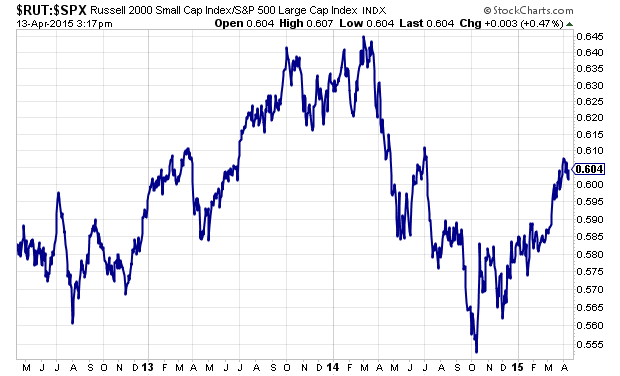
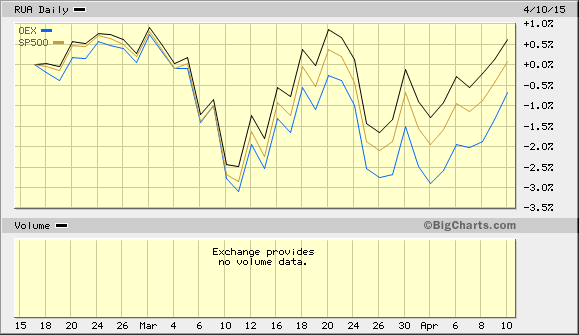
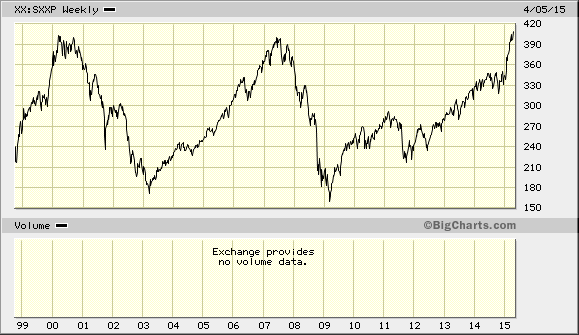
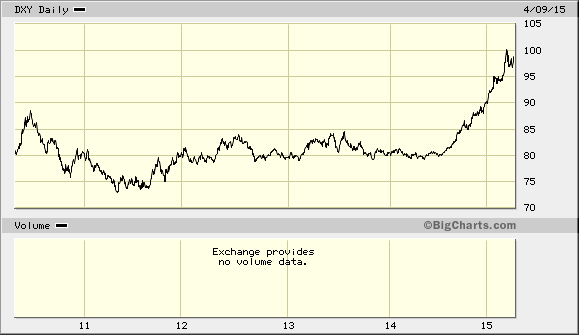
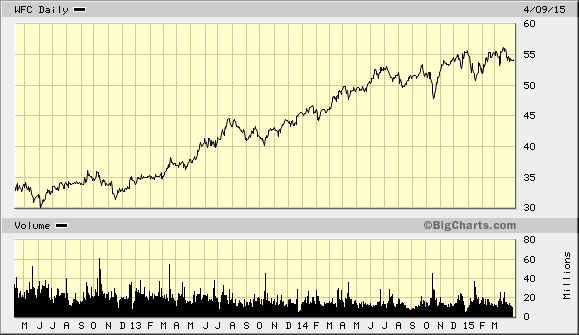
 Eddy Elfenbein is a Washington, DC-based speaker, portfolio manager and editor of the blog Crossing Wall Street. His
Eddy Elfenbein is a Washington, DC-based speaker, portfolio manager and editor of the blog Crossing Wall Street. His